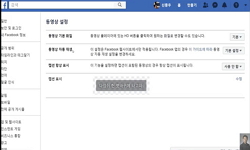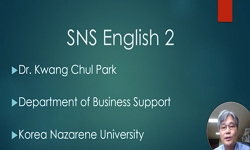본 연구는 페이스북 이용자의 성격특성이 페이스북 이용유형과 어떠한 관련이 있으며, 페이스북을 실제로 이용하면서 이용자들의 성격에 따라 페이스북 몰입의 정도가 다르게 나타나는 지...
http://chineseinput.net/에서 pinyin(병음)방식으로 중국어를 변환할 수 있습니다.
변환된 중국어를 복사하여 사용하시면 됩니다.
- 中文 을 입력하시려면 zhongwen을 입력하시고 space를누르시면됩니다.
- 北京 을 입력하시려면 beijing을 입력하시고 space를 누르시면 됩니다.

SNS 이용자의 성격이 SNS 이용유형과 SNS 몰입에 미치는 영향에 관한 연구: 페이스북을 중심으로 = Effects of SNS user`s Personality on Usage patterns and SNS commitment: A case study of Facebook
한글로보기https://www.riss.kr/link?id=A103034918
- 저자
- 발행기관
- 학술지명
- 권호사항
-
발행연도
2016
-
작성언어
Korean
-
주제어
SNS ; 페이스북 ; 성격 5요인 ; SNS 이용유형 ; SNS 몰입 ; Facebook ; The Big Five Personality Model ; Usage Patterns ; Commitment
-
KDC
004
-
등재정보
KCI등재
-
자료형태
학술저널
- 발행기관 URL
-
수록면
95-106(12쪽)
-
KCI 피인용횟수
6
- DOI식별코드
- 제공처
-
0
상세조회 -
0
다운로드
부가정보
국문 초록 (Abstract)
본 연구는 페이스북 이용자의 성격특성이 페이스북 이용유형과 어떠한 관련이 있으며, 페이스북을 실제로 이용하면서 이용자들의 성격에 따라 페이스북 몰입의 정도가 다르게 나타나는 지를 실증적으로 알아보고자 하였다. 페이스북을 가장 활발히 이용하는 대학생들을 대상으로 설문조사를 실시하였으며, 이들의 성격 5요인, 페이스북 이용유형, 그리고 SNS 몰입 척도를 이용하여 측정하였다. 분석결과 외향성과 친화성은 이용유형의 하위요인 중 정보확산에 정적인 영향을 미쳤으며, 개방성, 성실성, 신경증은 정보생산에 유의미한 영향을 미치는 것으로 드러났다. 또한 이용자의 성격 요인이 몰입에 미치는 영향을 살펴본 결과, 외향성은 지속적, 규범적 몰입에 영향을 미치는 것으로 나타났으며, 신경증은 지속적, 규범적, 정서적 몰입 모두에 정적인 영향력을 미치는 것으로 나타났다. 이러한 본 연구의 결과는 페이스북 이용에 있어 이용자의 성격특성에 따라 SNS 이용유형과 몰입의 종류와 정도가 각각 달라질 수 있음을 시사한다.
다국어 초록 (Multilingual Abstract)
The purpose of this study was to examine how college students use Facebook and the ways in which they feel of commitment while using Facebook. The Big Five Personality Model has been considerably used in the psychology fields, and the researchers have...
The purpose of this study was to examine how college students use Facebook and the ways in which they feel of commitment while using Facebook. The Big Five Personality Model has been considerably used in the psychology fields, and the researchers have started to explore the role of characteristic factors in influencing an individual`s use of social media, such as Facebook which has become one of the most popular social networking site in the world. Therefore, the current study aims to specify the links between The Big Five Personality Model and usage patterns as well as commitment of Facebook. Two hundreds thirty five college students participated in a survey and the results are as follows: First, participants who were high in extraversion and agreeableness were more likely to do information sharing activities such as sharing posts to their friends, writing comments on the other`s posts. In addition, participants who were high in openness to experience, conscientiousness, and neuroticism were more likely to do information producing activities including offering events, group, or public pages to meet people both on and offline. Second, in terms of the relationship between personality traits and commitment to the Facebook, the study found that extraversion and neuroticism were related to users` commitment to Facebook. These findings are consistent with the existing literature regarding extraversion and neuroticism were representative personality factors when it comes to commitment of media. Specifically, the study found that those who were high in neuroticism were more likely to produce information such as posting photos repeatedly or tagging their friends on posts, and also more likely to feel commitment on Facebook. These findings confirm that personality is a highly relevant factor in determining individual`s behavior and the degree of commitment on Facebook. Based on these findings implications and limitations of the study are discussed.
참고문헌 (Reference)
1 양혜승, "페이스북은 우리의 삶을 행복하게 하는가?: 대학생 집단에서 페이스북 읽기, 타인과의 상향비교, 삶에 대한 만족도의 관계" 한국언론학회 58 (58): 215-244, 2014
2 설진아, "페이스북 이용과 프라이버시 침해에 관한 연구" (사)한국언론법학회 11 (11): 63-92, 2012
3 황유선, "페이스북 몰입에 영향을 미치는 요인에 대한 연구" 한국언론학회 11 (11): 133-175, 2015
4 이상호, "소셜미디어 중독의 영향 요인 연구 : 페이스북 이용자의 인식과 몰입을 중심으로" 한국언론학회 57 (57): 176-210, 2013
5 김유정, "소셜네트워크서비스에 대한 이용과 충족 연구: 페이스북 이용을 중심으로" 한국여성커뮤니케이션학회 (20) : 71-105, 2011
6 주형준, "소비자의 성격이 온라인 쇼핑몰에 대한 몰입과 구전의도에 미치는 영향" 국제e-비즈니스학회 16 (16): 29-50, 2015
7 나종연, "사용확산모형을 적용한 소비자의 온라인 소셜 네트워크 활용에 대한 연구" 한국소비자학회 21 (21): 443-472, 2010
8 노영, "몰입(flow)에 영향을 미치는 SNS 이용 동기요인에 관한 연구 - 페이스북(facebook)을 중심으로 -" 국제e-비즈니스학회 16 (16): 287-304, 2015
9 김형수, "대학생들의 대인관계지향성과 SNS 몰입 간의 관계에서 사회불안의 매개효과" 학생생활상담연구소 35 (35): 11-26, 2014
10 Teresa Correa, "Who interacts on the Web?: The intersection of users’ personality and social media use" Elsevier BV 26 (26): 247-253, 2010
1 양혜승, "페이스북은 우리의 삶을 행복하게 하는가?: 대학생 집단에서 페이스북 읽기, 타인과의 상향비교, 삶에 대한 만족도의 관계" 한국언론학회 58 (58): 215-244, 2014
2 설진아, "페이스북 이용과 프라이버시 침해에 관한 연구" (사)한국언론법학회 11 (11): 63-92, 2012
3 황유선, "페이스북 몰입에 영향을 미치는 요인에 대한 연구" 한국언론학회 11 (11): 133-175, 2015
4 이상호, "소셜미디어 중독의 영향 요인 연구 : 페이스북 이용자의 인식과 몰입을 중심으로" 한국언론학회 57 (57): 176-210, 2013
5 김유정, "소셜네트워크서비스에 대한 이용과 충족 연구: 페이스북 이용을 중심으로" 한국여성커뮤니케이션학회 (20) : 71-105, 2011
6 주형준, "소비자의 성격이 온라인 쇼핑몰에 대한 몰입과 구전의도에 미치는 영향" 국제e-비즈니스학회 16 (16): 29-50, 2015
7 나종연, "사용확산모형을 적용한 소비자의 온라인 소셜 네트워크 활용에 대한 연구" 한국소비자학회 21 (21): 443-472, 2010
8 노영, "몰입(flow)에 영향을 미치는 SNS 이용 동기요인에 관한 연구 - 페이스북(facebook)을 중심으로 -" 국제e-비즈니스학회 16 (16): 287-304, 2015
9 김형수, "대학생들의 대인관계지향성과 SNS 몰입 간의 관계에서 사회불안의 매개효과" 학생생활상담연구소 35 (35): 11-26, 2014
10 Teresa Correa, "Who interacts on the Web?: The intersection of users’ personality and social media use" Elsevier BV 26 (26): 247-253, 2010
11 Natalie J. Allen, "The measurement and antecedents of affective, continuance and normative commitment to the organization" Wiley-Blackwell 63 (63): 1-18, 1990
12 Cattell, R. B, "The description and measurement of personality" World Book 1946
13 Rolland, J. P., "The cross-cultural generalizability of the five-factor model of personality, In The five-factor model of personality across cultures" Springer US 7-28, 2002
14 JooHyun Shin, "Study on the effect of personal community forming factors on community commitment and site loyalty" The Graduate School of Seoul National University 2005
15 Fan, Qing, "Study on the Factors Affecting Social Network Service (SNS) Users’ Intention of Continuous Use" The Graduate School of Seoul National University 2010
16 Rosengerg, M., "Society and adolescent self-image" Princeton University Press 1965
17 Yair Amichai-Hamburger, "Social network use and personality" Elsevier BV 26 (26): 1289-1295, 2010
18 Soraya Mehdizadeh, "Self-Presentation 2.0: Narcissism and Self-Esteem on Facebook" Mary Ann Liebert Inc 13 (13): 357-364, 2010
19 조성현, "SNS 중독경향성 관련 요인 탐색: 내현적 자기애, 자기제시 동기 및 소외감을 중심으로" 한국건강심리학회 18 (18): 239-250, 2013
20 Thomas W. Gruen, "Relationship Marketing Activities, Commitment, and Membership Behaviors in Professional Associations" American Marketing Association (AMA) 64 (64): 34-49, 2000
21 Kathryn Wilson, "Psychological Predictors of Young Adults' Use of Social Networking Sites" Mary Ann Liebert Inc 13 (13): 173-177, 2010
22 Craig Ross, "Personality and motivations associated with Facebook use" Elsevier BV 25 (25): 578-586, 2009
23 Bachrach, Y., "Personality and Patterns of Facebook Usage" 2012
24 Smeele, M., "Participation on Facebook, MySpace and Twitter" Erasmus University 2010
25 P.T. Costa Jr, "Neo personality inventory-revised(NEO-PI-R) and Neo Five-factor Inventory(NEO-FFI) professional manual"
26 Finn, S., "Media access: Social and psychological dimensions of new technology use" Erlbaum 73-90, 2004
27 Hoffman, Donna L., "Marketing in Hyper-Media Computer-Mediated Environment : Conceptual Foundations" 60 (60): 50-68, 1996
28 Samuel D. Gosling, "Manifestations of Personality in Online Social Networks: Self-Reported Facebook-Related Behaviors and Observable Profile Information" Mary Ann Liebert Inc 14 (14): 483-488, 2011
29 Goldberg, L. R., "Language and individual differences : The search for universals in personality" 2 (2): 141-165, 1981
30 Burnett, G., "Information exchange in virtual communities:a typology" 5 (5): 2000
31 Csikszentmihalyi, M, "Flow: The Psychology of Optimal Experience" Haper and Row 1990
32 Yun Ji Moon, "Exploring neuroticism and extraversion in flow and user generated content consumption" Elsevier BV 51 (51): 347-358, 2014
33 Minas Michikyan, "Can you tell who I am? Neuroticism, extraversion, and online self-presentation among young adults" Elsevier BV 33 : 179-183, 2014
34 Younhwa Kim, "Analysis of SNS Usage trends and patterns" KISDI STAT
35 Jiha Kim, "An effect on Facebook activities and SNS addiction proneness by personality traits and need for affiliation" Korea Counseling Gradate University 2014
동일학술지(권/호) 다른 논문
-
보안성이 향상된 퍼지추출 기술 기반 사용자 인증 및 키 동의 스킴
- 한국인터넷정보학회
- 최윤성 ( Younsung Choi )
- 2016
- KCI등재
-
- 한국인터넷정보학회
- 박승철 ( Seungchul Park )
- 2016
- KCI등재
-
- 한국인터넷정보학회
- 김남용 ( Namyong Kim )
- 2016
- KCI등재
-
에지 관측 모델과 파티클 필터를 이용한 이동 객체 추적
- 한국인터넷정보학회
- 김효연 ( Hyoyeon Kim )
- 2016
- KCI등재
분석정보
인용정보 인용지수 설명보기
학술지 이력
| 연월일 | 이력구분 | 이력상세 | 등재구분 |
|---|---|---|---|
| 2027 | 평가예정 | 재인증평가 신청대상 (재인증) | |
| 2021-01-01 | 평가 | 등재학술지 유지 (재인증) |  |
| 2018-01-01 | 평가 | 등재학술지 유지 (등재유지) |  |
| 2015-01-01 | 평가 | 등재학술지 유지 (등재유지) |  |
| 2013-11-05 | 학술지명변경 | 외국어명 : Journal of Korean Society for Internet Information -> Journal of Internet Computing and Services |  |
| 2011-01-01 | 평가 | 등재학술지 유지 (등재유지) |  |
| 2009-01-01 | 평가 | 등재학술지 유지 (등재유지) |  |
| 2006-01-01 | 평가 | 등재학술지 선정 (등재후보2차) |  |
| 2005-01-01 | 평가 | 등재후보 1차 PASS (등재후보1차) |  |
| 2003-01-01 | 평가 | 등재후보학술지 선정 (신규평가) |  |
학술지 인용정보
| 기준연도 | WOS-KCI 통합IF(2년) | KCIF(2년) | KCIF(3년) |
|---|---|---|---|
| 2016 | 0.55 | 0.55 | 0.63 |
| KCIF(4년) | KCIF(5년) | 중심성지수(3년) | 즉시성지수 |
| 0.64 | 0.6 | 0.85 | 0.03 |





 ScienceON
ScienceON KISS
KISS






